True Calling
Yonghoon Lee thought he’d become a missionary and was ready to spread the word, then found another use for his incredible voice.
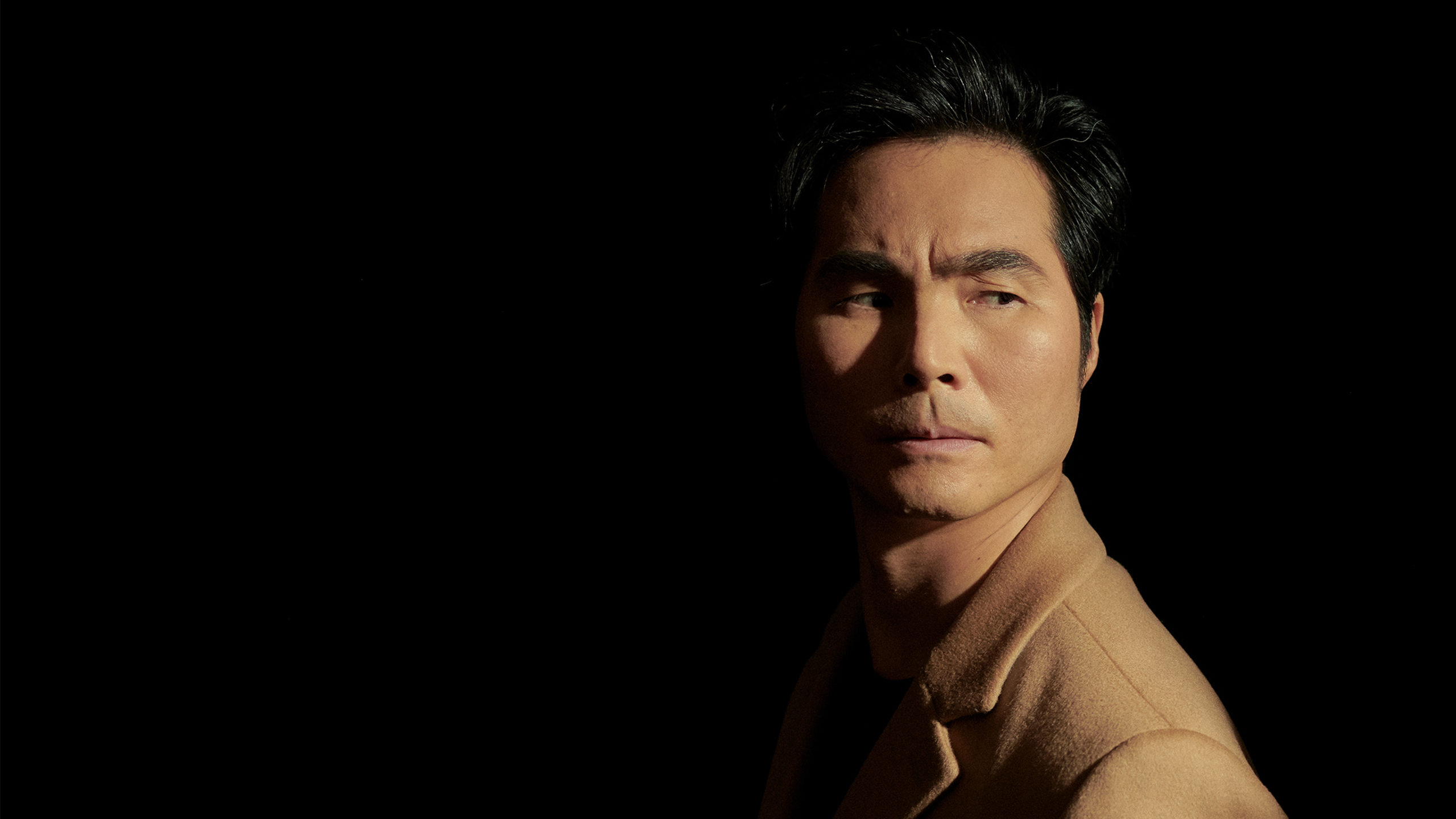
International star Yonghoon Lee returns to our stage in not one, not two, but three starring roles across the 2022 season.
The South Korean tenor plays Prince Calàf in Turandot, the titular fallen general in Otello, followed by Manrico in Il Trovatore. Given these roles represent vastly different characters, audiences have a rare opportunity to experience the full gamut of Yonghoon’s abilities.
For Artistic Director Lyndon Terracini, there’s much more to Yonghoon than talent. “And he is extremely talented,” says Lyndon emphatically.
According to Lyndon, as well as being a great operatic tenor, Yonghoon has the charisma of a matinee idol. “He reminds me a lot of Italian opera tenor Mario del Monaco, both vocally and in terms of the enormous passion with which he sings,” says Lyndon.
Yonghoon made his international debut in 2007 as the titular Don Carlo at the Teatro Municipal in Santiago. He impressed as Cavaradossi in the 2012/13 Royal Opera House season of Tosca and reprised that role for Opera Australia’s 2013 production of Tosca. However, Lyndon recalls really seeing Yonghoon’s potential realised at New York’s Metropolitan Opera in 2015 when the tenor had jumped into the role of Don José in Carmen to cover an unwell Jonas Kaufmann. “Yonghoon wasn’t yet a big name... I hired him [for back to back roles] because I heard this fantastic voice and he’s been coming here very regularly ever since”.
Yonghoon Lee performs 'E Lucevan Le Stelle' in Tosca at the Sydney Opera House (2013).
When Yonghoon stepped onto the Sydney Opera House stage as Calàf in Turandot (2015) and Don José in Carmen (2016), he was a sensation. Since then, Yonghoon has performed at the world’s most prestigious theatres including the Royal Opera House, Covent Garden, Deutsche Oper Berlin, Vienna State Opera, La Scala in Milan amongst others.
Yonghoon Lee in Carmen at the Sydney Opera House (2016). Photo: Keith Saunders.
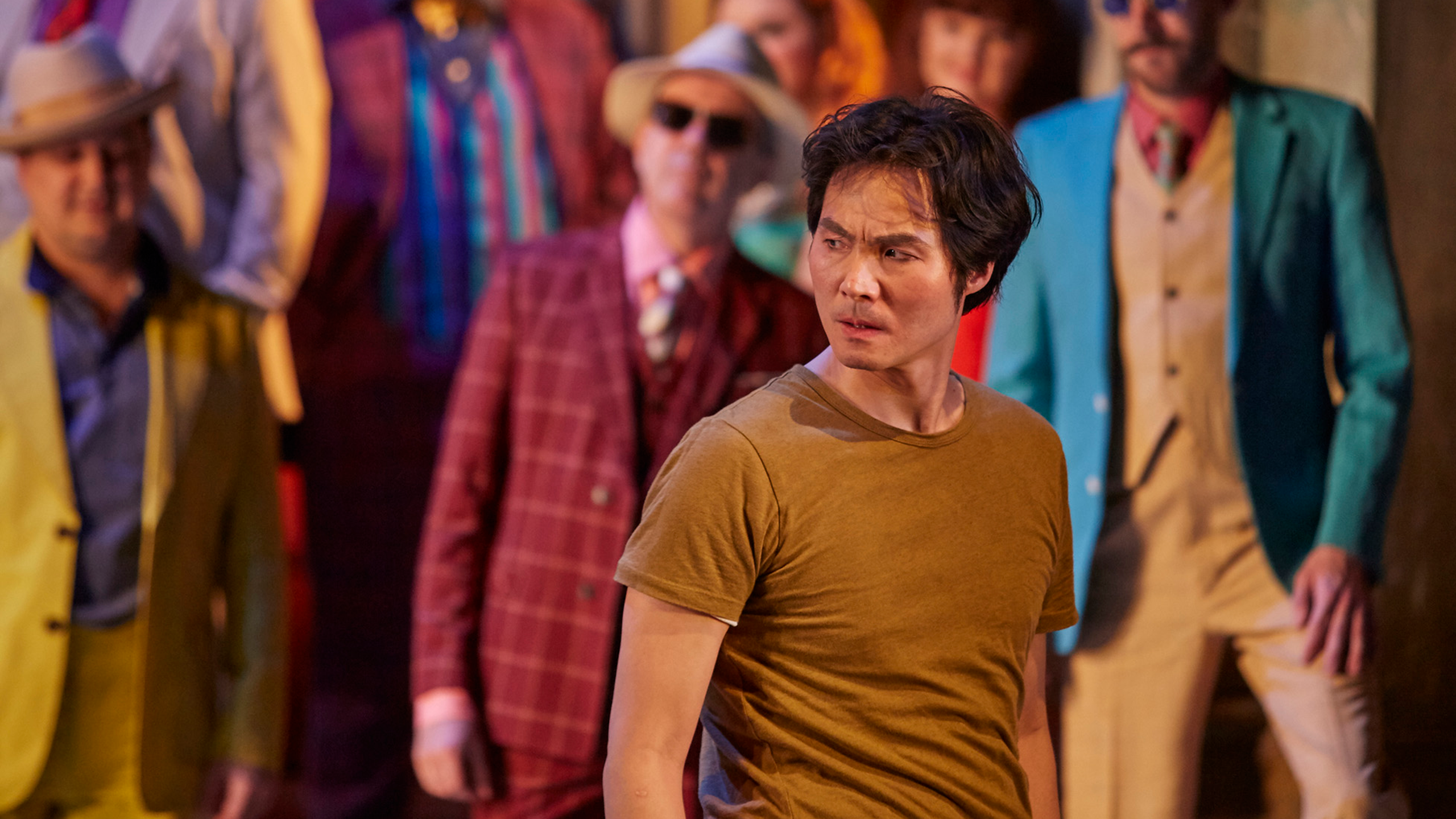
Yonghoon reprises the role of Calàf in this year’s production of Turandot, which is on stage now until 14 March 2022. Will he bring the chemistry that can melt the Princess’ icy heart?
“Well, a voice like that would melt anyone’s heart,” says Lyndon laughing, “and once Yonghoon starts letting go with those big, high notes, it’s just electrifying! When you hear that sort of sound coming out of a human being, unamplified, in the theatre, it’s so exciting. I mean, even sitting in the back row of the theatre, you can feel the air buzzing around your ears.”
When asked what to expect when Yonghoon debuts as the tormented general and fallen hero Otello, Lyndon is equally emphatic. “When Yonghoon sings the ‘Esultate’, Otello’s first entrance which is notoriously difficult, it is thrilling.”
In July, Yonghoon plays Manrico in Il Trovatore, which is famous for the big aria ‘Di quella pira’ that culminates in a sustained crescendo. “It’s completely the opposite of Otello, which is much more of a baritonal role. So, Yonghoon has this big high C to sing at the end, and it is sensational every time he hits it. I know audiences will go wild when they hear it,” enthuses Lyndon.
We caught up with Yonghoon between recent engagements to find out where this incredible voice came from, what inspires him, and about playing his dream roles.
Yonghoon Lee in Turandot at the Sydney Opera House (2022). Photo: Prudence Upton.
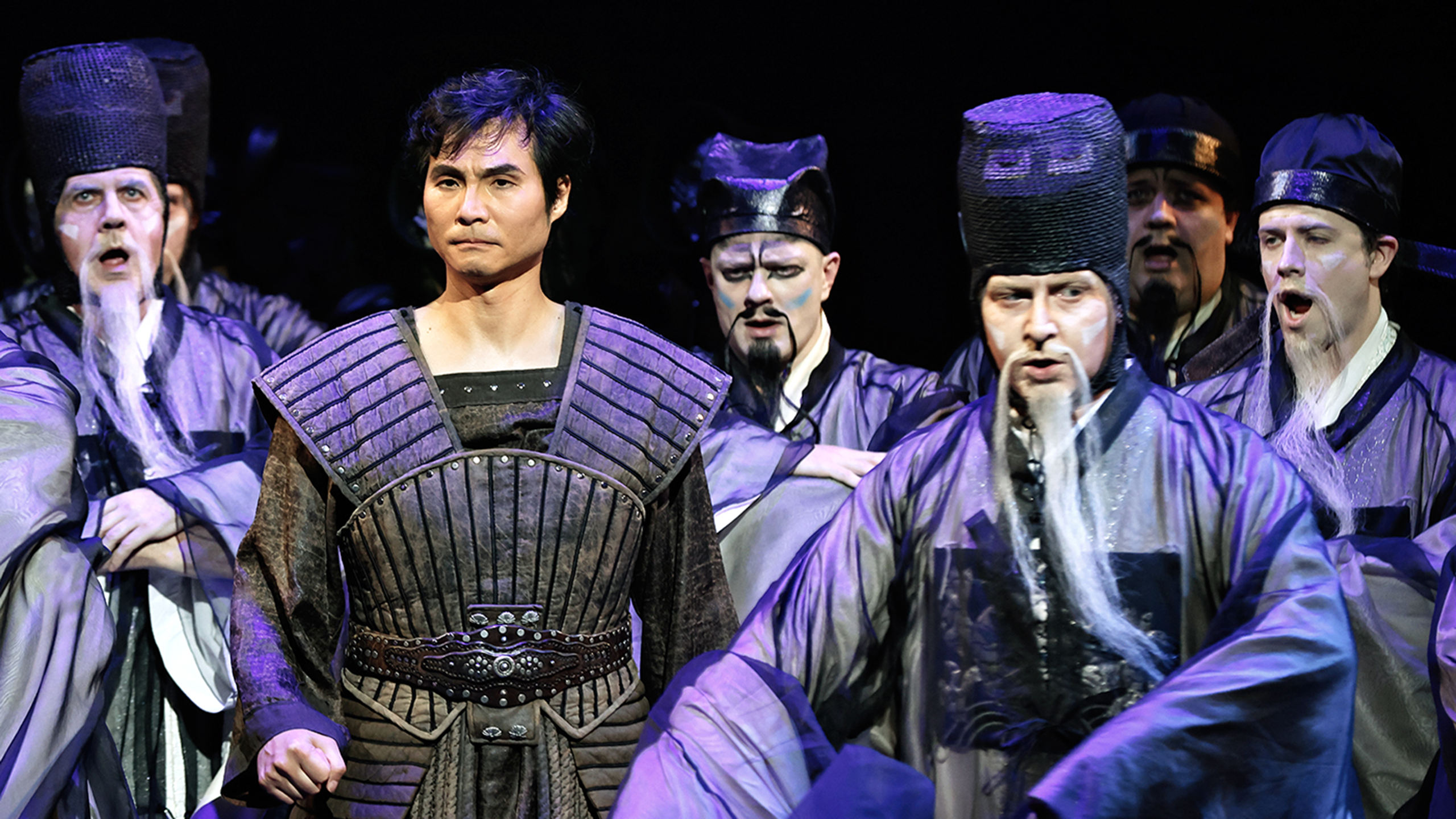
Finding your voice
OA: Thank you for taking the time to share a few thoughts with us. Tell us about your introduction to opera?
YL: When I was eight years old, my father invited me to an opera called Turandot, and I was introduced to opera for the first time in my life. I remember being very surprised how a person could sing like that without a microphone.
OA: Did you always want to sing? Or did you have other plans in mind?
YL: I never even thought about singing as a child. When I was younger, my dream was to be a missionary. So, after graduating from high school, I entered college as a theology student and then also studied business administration. Obviously, these are far from opera.
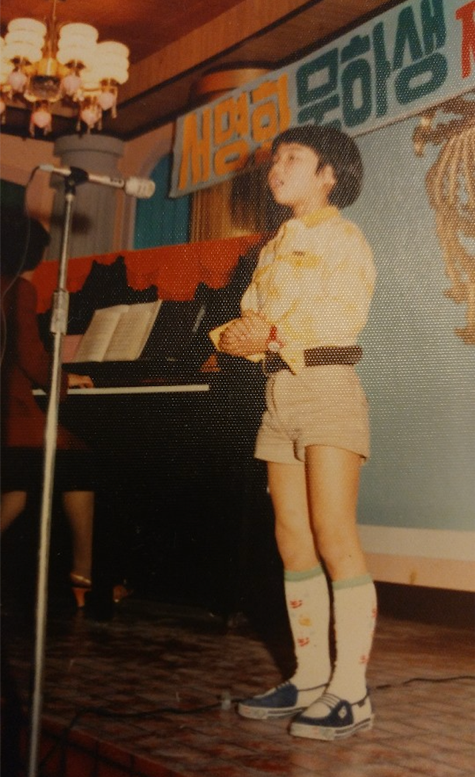
Yonghoon steps up to the microphone, aged eight. Photo courtesy Yonghoon Lee.
Yonghoon steps up to the microphone, aged eight. Photo courtesy Yonghoon Lee.
OA: Can you tell us about the time that opera became important to you? Was there a lightbulb moment or was it a gradual growing appreciation?
YL: One day, I took the lead in worship and praise at a church and realised I wanted to sing better. So, I asked a friend of mine who was studying vocal music for a lesson, and during the first session, my friend strongly encouraged me to seriously study vocal music. From then on, I gradually became deeply fascinated with vocal music and eventually decided to become a professional singer.
OA: What were you like as a student of music and opera / lyric theatre?
YL: I can say I was a really passionate student.
Five months after I started vocal training, I entered Seoul National University, Korea's top university and the country’s leading music school. I received a full scholarship for four years of study. Currently, I am a professor of the vocal music department at my alma mater, Seoul National University.
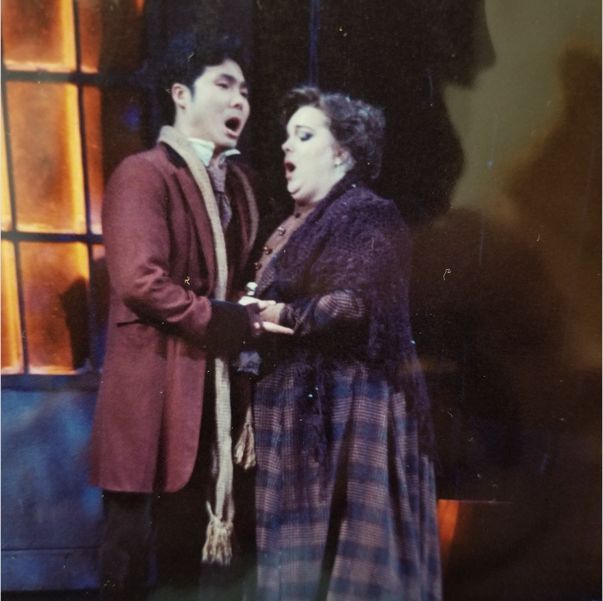
Yonghoon Lee as Rodolfo in La Bohème at The Mannes College of Music, 1996. Photo courtesy Yonghoon Lee.
Yonghoon Lee as Rodolfo in La Bohème at The Mannes College of Music, 1996. Photo courtesy Yonghoon Lee.
OA: What were the operas, arias and libretti that resonated with you as you started to appreciate opera? And why?
YL: In 1996, my alma mater planned to hold to celebrate its 50th anniversary with a performance of La Bohème. I was lucky to be selected to play the main tenor character, Rodolfo. That was my first experience participating in an opera.
While preparing for the opera, I actually fell in love with the actress who played Mimì, and there was no separation between art and life.
Inhabiting each role
OA: You are performing three leading roles in Opera Australia’s 2022 season: starring as Calàf in Turandot (January), as the titular Otello (in Feb/Mar), and as Manrico in Il Trovatore (in July).
How do you prepare for these roles? And given Turandot and Otello are so close in your schedule, how do you switch streams from one character to another?
YL: Most roles I play, especially roles like Calàf and Otello, require a lot of time to prepare. Analysis of the character and the accompanying sound and acting also require a lot of time. The two roles seem to call for the same spinto dramatic tenor, but their characters are quite different. In particular, as Otello’s character unfolds and develops dramatically, a tenor must be prepared to express many different colours and dynamics through sound.
OA: How do you build empathy for your characters?
YL: When I study characters in a work, if there is an original source, I always find and check that first. Then, I analyse the character through various sources other than the original. I also look for people who have lived in the same situation. Finally, I look into my own life, and I try to bring the character's psychology into my life as much as possible.
Yonghoon Lee and Alexia Voulgaridou in Tosca at the Sydney Opera House (2013). Photo: Prudence Upton.
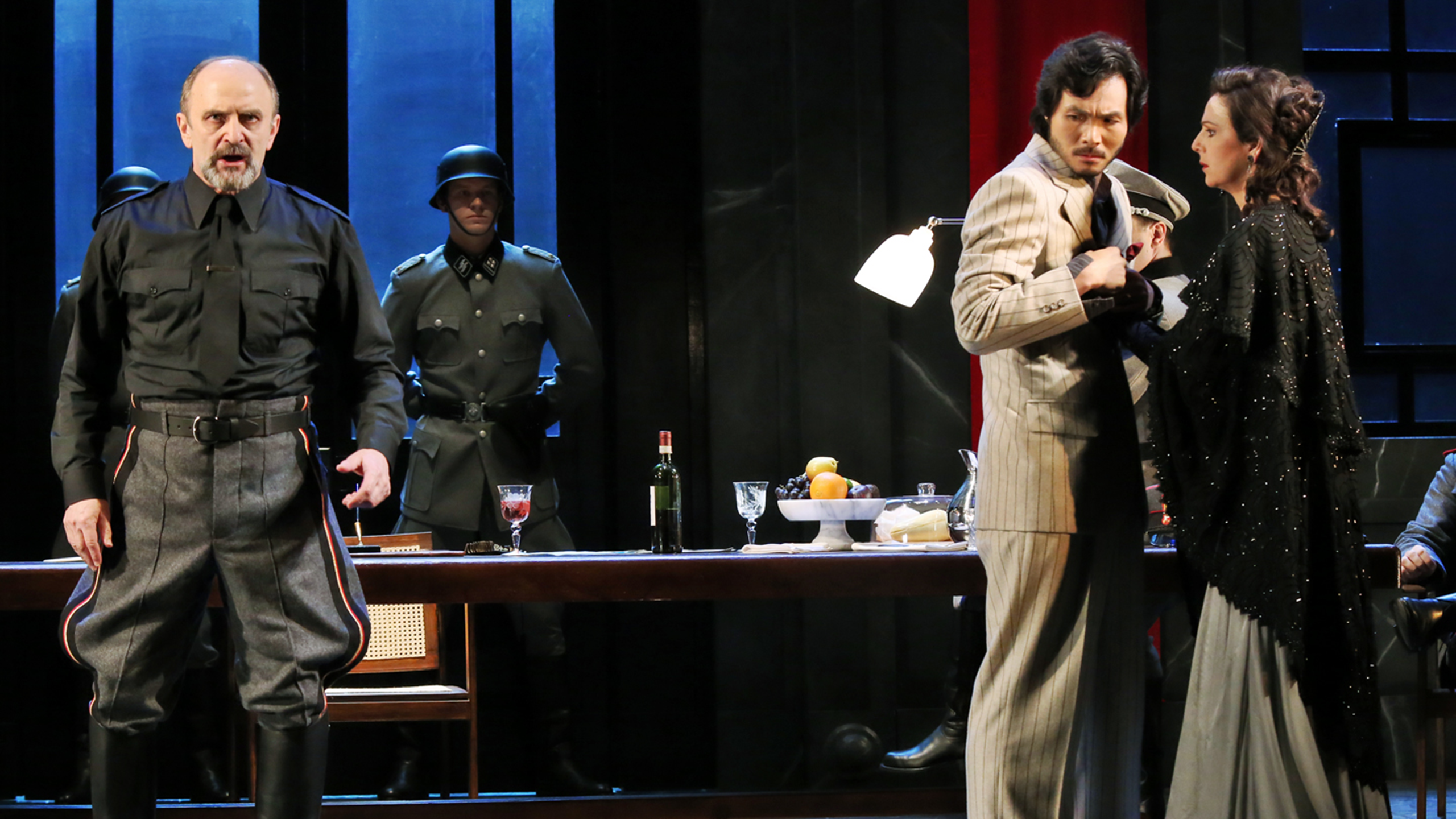
Turandot
OA: Tell us what it takes to be Prince Calàf in Turandot.
YL: First of all, this role is possible when you can produce a heroic and powerful dramatic voice, a solid and stable high note, and express strong and unshakable acting in any adversity to win love.
OA: As Calàf, you sing possibly the most famous aria in opera history – ‘Nessun dorma’ – which was immortalised by none other than Pavarotti. You mentioned that you prepare by warming up your lower and middle voice and trusting that the high note will come. Can you rely on trust? What else does it take?
YL: The low and middle voice range of dramatic tenors for roles like Calàf and Otello are different from those of general tenors like lyric or leggero tenors. Rather than simply the high and low tones of the note itself, even the low and mid tones can be expressed as rich and powerful sounds as the high notes. What makes this possible is, of course, the well-trained art of vocalisation.
Otello
OA: Tell us about becoming Otello.
YL: For a long time, the role of Otello has been my dream role. I am extremely happy to make my dream role debut with Opera Australia this time. Musically, it is truly a masterpiece, and I was delighted throughout the preparation.
All dramatic tenors dream of playing the role of Otello. However, Otello is not a role that can be simply portrayed as a dramatic tenor. Not only should the tenor have a heroic sound and powerful treble, but the low voice range should have the same colour as a baritone. The tenor must have a variety of dark colours and rich sounds to express Otello’s complex psychological state and inner conflict. A tenor’s stage performances must also be able to express complex emotions in depth.
OA: Otello is a decorated general, someone you’d think has the highest principles and moral compass. Yet he succumbs to his anxieties and jealous rage, with [spoiler alert] the innocent Desdemona as collateral damage. Why should audiences relate to and empathise with him?
YL: Shakespeare’s Othello is a character with a side that we can all sympathize with. For example, unlike the faces shown to others on the outside, there are times when I am filled with my own inner doubts, a sense of inferiority, and dark thoughts that only I know... and I believe many people live by hiding them. Because they are hidden, it is difficult to hear or see them, but that does not mean they do not exist. But when my hidden emotions come out, it surprises not only the people around me but also myself. The audience will be able to fully empathize with these conflicting emotions in the character of Otello, and even feel compassion for him.
Il Trovatore
OA: Tell us about becoming Manrico in Il Trovatore.
YL: Manrico is both a warrior and a poet-musician. Therefore, there are heroic lines as well as aspects that need to be expressed lyrically. You should be able to do both fluently.
OA: Il Trovatore has a plot that has more volatile twists and turns than a Tarantino film. Tell us how Manrico fits in and what drives him?
YL: The secret of Manrico's birth is hidden in the story and told by legend at the beginning of the opera. The core composition of this opera is that the shrouded secret of Manrico’s birth is uncovered amidst the fierce battle of the love triangle. In this drama, Manrico pursues only love, and he eventually becomes a victim of a woman's vengeance without ever knowing his birth identity.
OA: What is the key to making such a wild ride of an opera believable and emotive?
YL: All the joys and sorrows that occur in the love triangle are emotions that we can easily encounter in our lives, which creates sympathy.
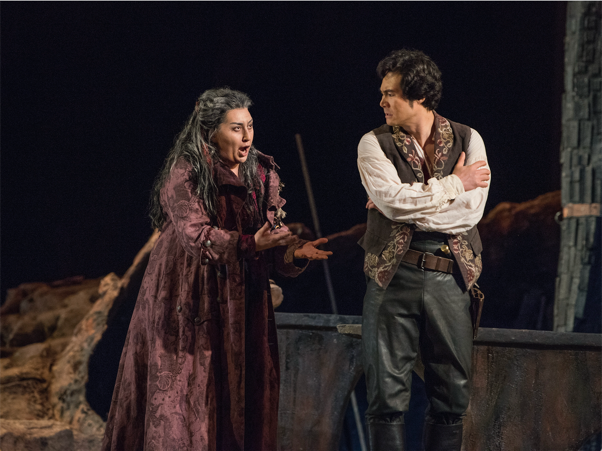
Anita Rachvelishvili as Azucena with Yonghoon Lee performing as Manrico in Il Trovatore at New York’s Metropolitan Opera (2017/18). Photo: Karen Almond / Met Opera.
Anita Rachvelishvili as Azucena with Yonghoon Lee performing as Manrico in Il Trovatore at New York’s Metropolitan Opera (2017/18). Photo: Karen Almond / Met Opera.
